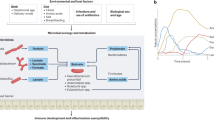Abstract
Objective: To assess whether nutritionally-relevant changes in polyunsaturated fatty acid (PUFA) intake alter indices of oxidative stress in human volunteers
Design: A split plot/change over dietary study where half the volunteers consumed a diet containing 5% PUFA (low PUFA) as food energy for 4 weeks and after a 6 week washout period consumed a 15% PUFA (high PUFA) diet for another 4 weeks. The second group of volunteers completed this protocol in reverse. Total fat, carbohydrate, protein and vitamin E contents of the diets were constant.
Subjects: 10 healthy, non-smoking, male volunteers aged 32.6±1.7 y
Results: There was a significant increase in whole blood oxidised glutathione (P<0.05), an index of oxidative stress, after consumption of the high PUFA diet. Moreover, urinary thiobarbituric acid reactive substances (TBARS), an index of lipid peroxidation, significantly increased (P=0.038) following consumption of the high PUFA diet and decreased (P=0.031) after consuming the low PUFA diet. However, there was no change in non specific plasma indices of lipid peroxidation, conjugated dienes and TBARS, nor in red cell antioxidant enzymes glutathione peroxidase, glutathione reductase, and catalase. However, superoxide dismutase significantly decreased (13%, P=0.018) after consumption of the low PUFA diet. Total cholesterol increased by 13% (P=0.014) after consumption of the low PUFA diet.
Conclusions: This study indicates that although increasing dietary levels of PUFA may favourably alter cholesterol profiles, the same dietary changes may adversely affect some indices of lipid peroxidation. Care should be taken when providing dietary advice on PUFA intake and an adequate intake of antioxidants to match any increased PUFA may be important for preventing oxidative stress.
Sponsorship: Ministry of Agriculture, Fisheries and Food (MAFF) and the Scottish Office Agriculture, Environment, and Fisheries Department (SOAEFD)
This is a preview of subscription content, access via your institution
Access options
Subscribe to this journal
Receive 12 print issues and online access
$259.00 per year
only $21.58 per issue
Buy this article
- Purchase on Springer Link
- Instant access to full article PDF
Prices may be subject to local taxes which are calculated during checkout
Similar content being viewed by others
Author information
Authors and Affiliations
Rights and permissions
About this article
Cite this article
Jenkinson, A., Franklin, M., Wahle, K. et al. Dietary intakes of polyunsaturated fatty acids and indices of oxidative stress in human volunteers. Eur J Clin Nutr 53, 523–528 (1999). https://doi.org/10.1038/sj.ejcn.1600783
Received:
Accepted:
Published:
Issue Date:
DOI: https://doi.org/10.1038/sj.ejcn.1600783
Keywords
This article is cited by
-
Dietary trends and the decline in male reproductive health
Hormones (2023)
-
Long-term cold storage preservation does not affect fatty livers from rats fed with a methionine and choline deficient diet
Lipids in Health and Disease (2021)
-
The association between fatty acid index and in vitro fertilization outcomes
Journal of Assisted Reproduction and Genetics (2017)
-
Antioxidants and antioxidant enzymes status of rats fed on n-3 PUFA rich Garden cress (Lepidium Sativum L) seed oil and its blended oils
Journal of Food Science and Technology (2015)
-
Transcriptome-based identification of antioxidative gene expression after fish oil supplementation in normo- and dyslipidemic men
Nutrition & Metabolism (2012)



